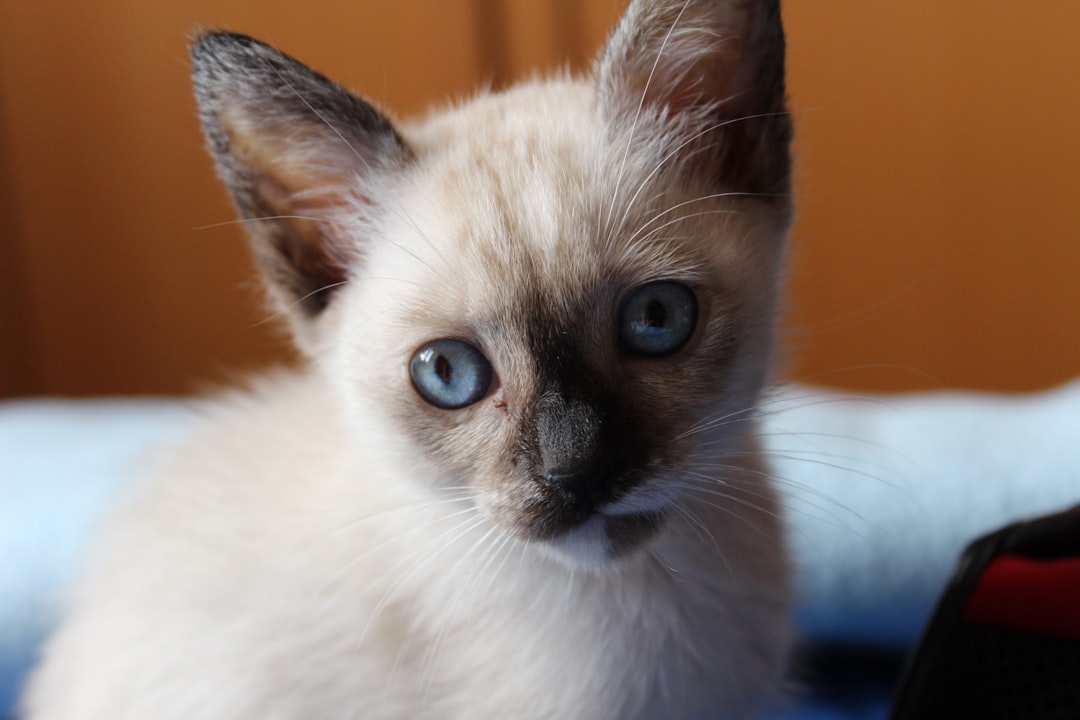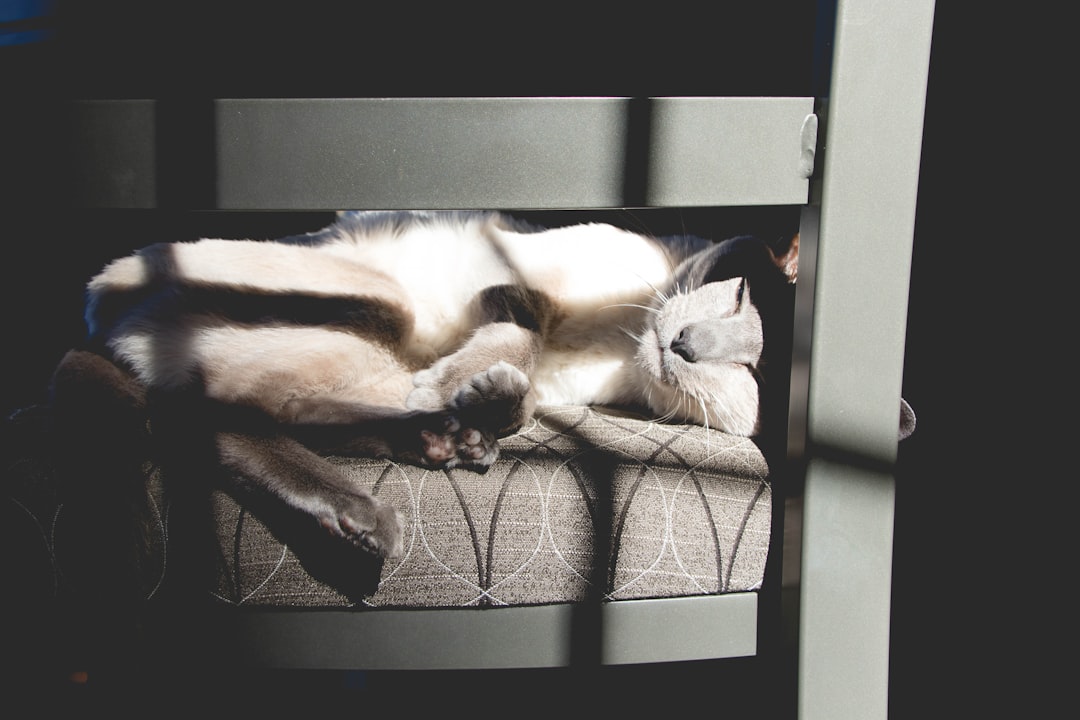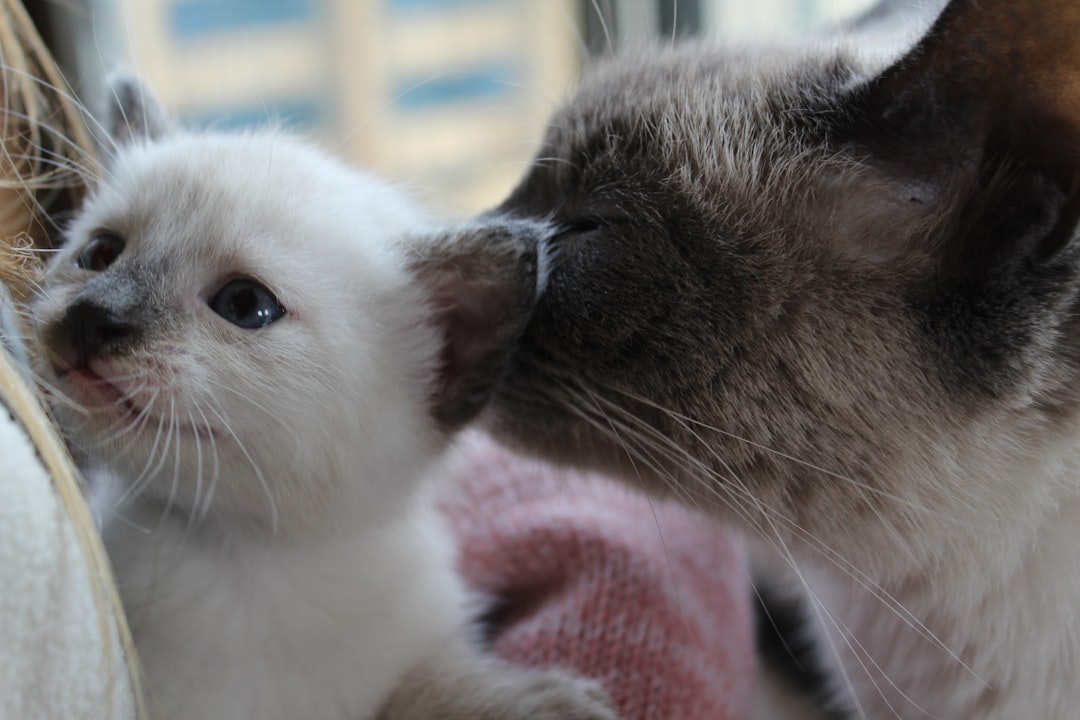Cats can be lovely companions, but when they start exhibiting unwanted behaviors, such as inappropriate urination, it can be concerning for pet owners. If you find yourself asking, "why is my cat peeing everywhere," this behavior could stem from various factors, including health issues, behavioral traits, or environmental changes. Understanding these underlying causes is crucial for addressing the problem effectively. In this article, we will explore insights and solutions to help you tackle this challenge and create a happier living environment for your feline friend.
Common Reasons for Cats Peeing Outside the Litter Box
When asking yourself, "why is my cat peeing everywhere," it’s crucial to consider various underlying reasons. Here are some common factors to keep in mind:
Medical Issues: Health problems like urinary tract infections or diabetes can lead to inappropriate urination. Cats may associate pain with the litter box, causing them to seek other areas.
Litter Box Preferences: Your cat might dislike the type of litter, box size, or cleanliness. A dirty box can deter them from using it.
Territorial Behavior: Cats are naturally territorial and may pee outside the box to mark their territory, especially if there are new pets or changes in the household.
Stress and Anxiety: Environmental changes like moving to a new home or adding family members may cause stress, prompting your cat to pee inappropriately.
Aging: Senior cats may experience cognitive decline or mobility issues, making it more difficult to reach the litter box.
By identifying these common reasons, you can better address the question of "why is my cat peeing everywhere" and work towards solutions that cater to your cat’s specific needs.

Health Issues to Consider
When grappling with the question, why is my cat peeing everywhere, health issues should always be a top priority. Cats often communicate discomfort or illness through changes in behavior, including inappropriate urination. Here are some common health issues that might cause this behavior:
Urinary Tract Infections (UTIs): These infections can lead to frequent urination and discomfort. Look for signs like straining to urinate.
Kidney Disease: As cats age, they may develop kidney problems, causing increased urination and thirst.
Diabetes: This condition can result in excessive thirst and urination. Monitor for sudden changes in appetite or weight.
Litter Box Issues: Sometimes, your cat might associate pain with the litter box due to previous discomfort when urinating.
Comparison of Health Concern Symptoms
| Health Issue | Symptoms |
|---|---|
| UTIs | Straining, blood in urine |
| Kidney Disease | Increased thirst, weight loss |
| Diabetes | Excessive urination, increased appetite |
Identifying the underlying health issue is crucial. If you notice any of these symptoms, consult a veterinarian to address your cat’s needs. Understanding why my cat is peeing everywhere could be vital for their health and well-being.
Behavioral Factors at Play
When addressing the question why is my cat peeing everywhere, it’s essential to consider various behavioral factors that may contribute to this issue. Cats are creatures of habit, and sudden changes in their environment or routine can lead to unwanted behaviors. Here are some common behavioral reasons:
- Territorial Marking: Cats may urinate to establish dominance or mark their territory, especially in households with multiple pets.
- Stress or Anxiety: Changes in the home, such as moving or new family members, can trigger anxiety, leading to inappropriate urination.
- Litter Box Aversion: If your cat dislikes the litter box—due to its cleanliness, location, or type of litter—they may seek out alternative spots.
- Boredom: An unengaged cat may exhibit unwanted behavior, such as peeing outside the litter box, due to lack of stimulation.
Identifying these factors can help pet owners address the root causes effectively. By observing your cat’s behavior and environment, you can take appropriate steps to answer that pressing question: why is my cat peeing everywhere?
Environmental Stressors
Understanding why is my cat peeing everywhere often involves looking at their environment. Cats are sensitive creatures, and any changes in their surroundings can trigger stress, leading to unwanted urination. Here are some common environmental stressors to consider:
- New Pets or People: Introducing a new pet or moving in a new person can cause anxiety in your cat.
- Loud Noises: Sudden loud sounds from fireworks or construction can scare your cat, prompting them to seek comfort in inappropriate places.
- Changes in Routine: Alterations in your schedule or feeding times can disrupt your cat’s sense of security.
- Inadequate Space: If your cat feels overcrowded, they may act out by urinating outside their litter box.
By identifying these stressors, you can create a calmer environment. Consider the following solutions:
- Create Safe Spaces: Ensure your cat has cozy spots to retreat to.
- Maintain a Routine: Stick to regular feeding and playtimes to provide stability.
- Gradual Introductions: Introduce new pets or people slowly to decrease anxiety.
By addressing these factors, you might alleviate your cat’s distress and minimize instances of questioning, “why is my cat peeing everywhere?”

Litter Box Maintenance Tips
Maintaining a clean and inviting litter box is crucial for your cat’s wellbeing. Poor litter box hygiene can contribute to your cat’s inappropriate peeing habits. If you’re wondering, "why is my cat peeing everywhere," consider these maintenance tips:
Regular Cleaning: Scoop the litter daily to remove waste and clumps. Aim for a complete wash of the box weekly to eliminate odors.
Right Litter Type: Experiment with different types of litter to find what your cat prefers. Some may favor clumping, while others may prefer non-clumping options.
Box Size and Style: Ensure the litter box is large enough for your cat. A good rule of thumb is one and a half times the length of your cat. Additionally, consider open versus covered boxes based on your cat’s preferences.
Number of Boxes: If you have multiple cats, provide enough boxes. The general guideline is one box per cat plus one extra.
Placement: Keep the litter box in a quiet, accessible location away from food and water bowls.
With proper litter box maintenance, you can reduce the chances of wondering “why is my cat peeing everywhere.” A clean environment promotes healthy habits!
Effective Training Techniques
If you’re wondering why is my cat peeing everywhere, effective training techniques can help address this frustrating issue. Here are some strategies to consider:
Positive Reinforcement: Reward your cat when it uses the litter box correctly. This can include treats, praise, or extra playtime.
Consistent Schedule: Establish a routine for feeding and litter box cleaning. Cats thrive on predictability, which can help them feel secure and more likely to use the box.
Create Ideal Conditions: Make sure the litter box is in a quiet, accessible location. A well-placed box encourages your cat to use it rather than find alternative spots.
Limit Access to Problem Areas: If your cat regularly pees in specific places, confine them to a space with easy access to the litter box until they learn the acceptable behavior.
Interactive Play: Engage your cat in regular interactive play sessions. This can reduce stress and redirect their energy into positive behaviors.
By employing these techniques, you can effectively address the question of why is my cat peeing everywhere, leading to a happier, healthier feline companion.
When to Consult a Veterinarian
If you find yourself asking, why is my cat peeing everywhere, it’s essential to consider when to seek professional help. Many factors contribute to inappropriate urination, but some signs indicate a need for veterinary attention:
- Frequent Urination: If your cat pees more often than usual or in larger amounts.
- Straining: Noticeable discomfort or straining while trying to urinate.
- Blood in Urine: Any trace of blood is concerning and requires immediate care.
- Lethargy: A sudden lack of energy, along with changes in appetite.
- Excessive Thirst: An increase in water consumption may signal underlying health issues.
Comparison of Signs
| Sign | Action Needed |
|---|---|
| Frequent urination | Consult vet immediately |
| Straining to urinate | Schedule an appointment |
| Blood in urine | Emergency visit required |
| Lethargy | Regular check-up |
| Excessive thirst | Full health evaluation |
Recognizing these signs early can often lead to better outcomes. Don’t hesitate; understanding why is my cat peeing everywhere can save your pet from discomfort and serious health issues.

Preventative Measures to Keep Your Cat Happy
To address the issue of "why is my cat peeing everywhere," implementing preventative measures is essential. Keeping your cat happy and healthy minimizes stress and behavioral issues. Here are some effective strategies:
Regular Vet Check-Ups: Schedule annual veterinary visits to detect potential health issues early.
Proper Nutrition: Provide a balanced diet that meets your cat’s specific needs, reducing the chances of urinary problems.
Enrichment Activities: Offer toys, scratching posts, and interactive playtime to stimulate your cat’s mind and reduce boredom.
Safe Spaces: Create quiet, comfortable areas in your home where your cat can retreat and feel secure.
Consistent Litter Box Maintenance:
- Keep it Clean: Scoop daily and change litter regularly.
- Multiple Boxes: Provide one litter box per cat, plus one extra, to prevent territorial disputes.
Stress Reduction: Minimize sudden changes in the household or environment, as these can contribute to behavioral issues.
By addressing these areas, you can significantly improve your cat’s well-being and potentially answer the question of "why is my cat peeing everywhere" before it becomes a problem.
Frequently Asked Questions
Why is my cat suddenly peeing outside the litter box?
Sudden urination outside the litter box in cats can be a sign of various issues, ranging from medical problems to behavioral changes. Common causes include urinary tract infections, kidney disease, or diabetes. Stressful environments, such as changes in the household, moving, or the addition of new pets can also trigger this behavior. It’s crucial to consult a veterinarian to rule out medical issues and then address any behavioral aspects.
How can I tell if my cat has a urinary tract infection?
To identify a potential urinary tract infection (UTI) in your cat, watch for signs such as frequent urination, straining to urinate, or blood in the urine. Cats may also exhibit behavioral changes like vocalizing while using the litter box or attempting to urinate in unusual places. If you observe any of these symptoms, it’s important to take your cat to the veterinarian for a thorough examination and appropriate treatment.
What are some effective solutions for preventing inappropriate urination in cats?
Preventing inappropriate urination in cats involves a combination of behavioral and environmental modifications. Ensure litter boxes are clean, accessible, and placed in quiet areas. Additionally, consider using pheromone diffusers to create a calming environment. Increasing playtime and mental stimulation can reduce stress and behavioral issues. If problems persist, consulting with a veterinarian or animal behaviorist can help identify underlying causes and develop a tailored behavior modification plan.
Could my cat be marking territory instead of urinating?
Yes, cats may exhibit marking behavior as a means of establishing territory, particularly if there are changes in their environment. Unlike urination, which is often more voluminous, marking typically involves small amounts of urine and is usually done on vertical surfaces. Signs of marking include frequent squatting in specific areas. If you suspect territorial marking, assess your cat’s environment for potential stressors and address them accordingly.



